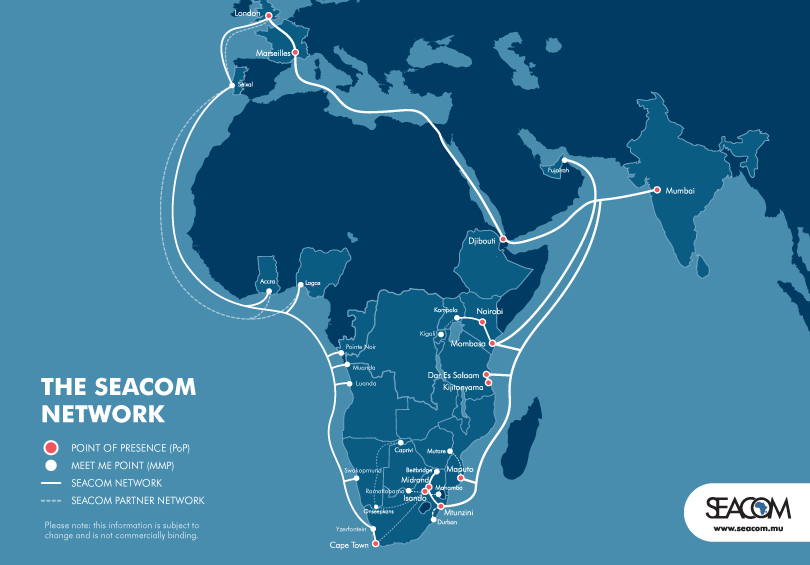|
Tanzania Broadcasting Corporation
The Tanzanian Broadcasting Corporation is a television network. It is Tanzania's national network and is government-owned and operated. History Radio broadcasts began on 1 July 1951. Until 1994, there was no single television network operating on mainland Tanzania. The only station of the United Republic was Television Zanzibar (TVZ), which was established in the early 1970s. Whereas other African countries had decided to establish television shortly before or soon after independence Mwalimu Julius Kambarage Nyerere’s cabinet resisted the introduction of television at all, insisting that the medium was too expensive and that Tanzania’s radio coverage was yet too imperfect. Moreover, it was argued that such an expansion would merely serve the upper and wealthy strata of the population as an entertainment medium. On the contrary, television proponents claimed that the medium could be an effective instrument in the national development process since it produced social awareness ... [...More Info...] [...Related Items...] OR: [Wikipedia] [Google] [Baidu] |
Terrestrial Television
Terrestrial television or over-the-air television (OTA) is a type of television broadcasting in which the signal transmission occurs via radio waves from the terrestrial (Earth-based) transmitter of a TV station to a TV receiver having an antenna. The term ''terrestrial'' is more common in Europe and Latin America, while in Canada and the United States it is called ''over-the-air'' or simply ''broadcast''. This type of TV broadcast is distinguished from newer technologies, such as satellite television (direct broadcast satellite or DBS television), in which the signal is transmitted to the receiver from an overhead satellite; cable television, in which the signal is carried to the receiver through a cable; and Internet Protocol television, in which the signal is received over an Internet stream or on a network utilizing the Internet Protocol. Terrestrial television stations broadcast on television channels with frequencies between about 52 and 600 MHz in the VHF and U ... [...More Info...] [...Related Items...] OR: [Wikipedia] [Google] [Baidu] |
Julius Nyerere
Julius Kambarage Nyerere (; 13 April 1922 – 14 October 1999) was a Tanzanian anti-colonial activist, politician, and political theorist. He governed Tanganyika as prime minister from 1961 to 1962 and then as president from 1962 to 1964, after which he led its successor state, Tanzania, as president from 1964 to 1985. He was a founding member and chair of the Tanganyika African National Union (TANU) party, and of its successor Chama Cha Mapinduzi, from 1954 to 1990. Ideologically an African nationalist and African socialist, he promoted a political philosophy known as Ujamaa. Born in Butiama, Mara, then in the British colony of Tanganyika, Nyerere was the son of a Zanaki chief. After completing his schooling, he studied at Makerere College in Uganda and then Edinburgh University in Scotland. In 1952 he returned to Tanganyika, married, and worked as a school teacher. In 1954, he helped form TANU, through which he campaigned for Tanganyikan independence from the British Em ... [...More Info...] [...Related Items...] OR: [Wikipedia] [Google] [Baidu] |
Television Channels And Stations Established In 2001
Television, sometimes shortened to TV, is a telecommunication Media (communication), medium for transmitting moving images and sound. The term can refer to a television set, or the medium of Transmission (telecommunications), television transmission. Television is a mass medium for advertising, entertainment, news, and sports. Television became available in crude experimental forms in the late 1920s, but only after several years of further development was the new technology marketed to consumers. After World War II, an improved form of black-and-white television broadcasting became popular in the United Kingdom and the United States, and television sets became commonplace in homes, businesses, and institutions. During the 1950s, television was the primary medium for influencing public opinion.Diggs-Brown, Barbara (2011''Strategic Public Relations: Audience Focused Practice''p. 48 In the mid-1960s, color broadcasting was introduced in the U.S. and most other developed countri ... [...More Info...] [...Related Items...] OR: [Wikipedia] [Google] [Baidu] |
Television Stations In Tanzania
Television, sometimes shortened to TV, is a telecommunication medium for transmitting moving images and sound. The term can refer to a television set, or the medium of television transmission. Television is a mass medium for advertising, entertainment, news, and sports. Television became available in crude experimental forms in the late 1920s, but only after several years of further development was the new technology marketed to consumers. After World War II, an improved form of black-and-white television broadcasting became popular in the United Kingdom and the United States, and television sets became commonplace in homes, businesses, and institutions. During the 1950s, television was the primary medium for influencing public opinion.Diggs-Brown, Barbara (2011''Strategic Public Relations: Audience Focused Practice''p. 48 In the mid-1960s, color broadcasting was introduced in the U.S. and most other developed countries. The availability of various types of archival storag ... [...More Info...] [...Related Items...] OR: [Wikipedia] [Google] [Baidu] |
List Of Tanzania-related Topics
The following outline is provided as an overview of and topical guide to Tanzania: Tanzania – sovereign country located in East Africa. Tanzania borders Kenya and Uganda on the north, Rwanda, Burundi and the Democratic Republic of the Congo on the west, and Zambia, Malawi and Mozambique on the south. To the east it borders the Indian Ocean. General reference * Pronunciation: , * Common English country name: Tanzania * Official English country name: The United Republic of Tanzania * Common endonym(s): * Official endonym(s): * Adjectival(s): Tanzanian * Demonym(s): * Etymology: Name of Tanzania * International rankings of Tanzania * ISO country codes: TZ, TZA, 834 * ISO region codes: See ISO 3166-2:TZ * Internet country code top-level domain: .tz Geography of Tanzania Geography of Tanzania * Tanzania is: a country * Location: ** Southern Hemisphere and Eastern Hemisphere ** Africa *** East Africa ** Time zone: East Africa Time (UTC+03) ** Extrem ... [...More Info...] [...Related Items...] OR: [Wikipedia] [Google] [Baidu] |
Communications In Tanzania
Telecommunications in Tanzania include radio, television, fixed and mobile telephones, and the Internet available in mainland Tanzania and the semiautonomous Zanzibar archipelago. Regulation and licensing In 2005, mainland Tanzania, but not the semiautonomous Zanzibar archipelago, modified its licensing system for electronic communications, modelling it on the approach successfully pioneered in Malaysia in the late 1990s where traditional "vertical" licenses (the right to operate a telecom or a broadcasting network, and right to provide services on that network) are replaced by "horizontal" licenses (the right to operate telecom and broadcasting networks, with a separate license required to provide services on each network). Called the "Converged Licensing Framework (CLF)", this reform was the first of its kind put into practice on the African continent, and allows investors to concentrate on their area of expertise (i.e. network facility, network services, application services, and ... [...More Info...] [...Related Items...] OR: [Wikipedia] [Google] [Baidu] |
Nippon Electric Corporation
is a Japanese multinational information technology and electronics corporation, headquartered in Minato, Tokyo. The company was known as the Nippon Electric Company, Limited, before rebranding in 1983 as NEC. It provides IT and network solutions, including cloud computing, artificial intelligence (AI), Internet of things (IoT) platform, and telecommunications equipment and software to business enterprises, communications services providers and to government agencies, and has also been the biggest PC vendor in Japan since the 1980s when it launched the PC-8000 series. NEC was the world's fourth-largest PC manufacturer by 1990. Its semiconductors business unit was the world's largest semiconductor company by annual revenue from 1985 to 1992, the second largest in 1995, one of the top three in 2000, and one of the top 10 in 2006. NEC spun off its semiconductor business to Renesas Electronics and Elpida Memory. Once Japan's major electronics company, NEC has largely withdrawn from ... [...More Info...] [...Related Items...] OR: [Wikipedia] [Google] [Baidu] |
UNESCO
The United Nations Educational, Scientific and Cultural Organization is a specialized agency of the United Nations (UN) aimed at promoting world peace and security through international cooperation in education, arts, sciences and culture. It has 193 member states and 12 associate members, as well as partners in the non-governmental, intergovernmental and private sector. Headquartered at the World Heritage Centre in Paris, France, UNESCO has 53 regional field offices and 199 national commissions that facilitate its global mandate. UNESCO was founded in 1945 as the successor to the League of Nations's International Committee on Intellectual Cooperation.English summary). Its constitution establishes the agency's goals, governing structure, and operating framework. UNESCO's founding mission, which was shaped by the Second World War, is to advance peace, sustainable development and human rights by facilitating collaboration and dialogue among nations. It pursues this objective t ... [...More Info...] [...Related Items...] OR: [Wikipedia] [Google] [Baidu] |
Julius Kambarage Nyerere
Julius Kambarage Nyerere (; 13 April 1922 – 14 October 1999) was a Tanzanian anti-colonial activist, politician, and political theorist. He governed Tanganyika as prime minister from 1961 to 1962 and then as president from 1962 to 1964, after which he led its successor state, Tanzania, as president from 1964 to 1985. He was a founding member and chair of the Tanganyika African National Union (TANU) party, and of its successor Chama Cha Mapinduzi, from 1954 to 1990. Ideologically an African nationalist and African socialist, he promoted a political philosophy known as Ujamaa. Born in Butiama, Mara, then in the British colony of Tanganyika, Nyerere was the son of a Zanaki chief. After completing his schooling, he studied at Makerere College in Uganda and then Edinburgh University in Scotland. In 1952 he returned to Tanganyika, married, and worked as a school teacher. In 1954, he helped form TANU, through which he campaigned for Tanganyikan independence from the British E ... [...More Info...] [...Related Items...] OR: [Wikipedia] [Google] [Baidu] |
Satellite Television
Satellite television is a service that delivers television programming to viewers by relaying it from a communications satellite orbiting the Earth directly to the viewer's location. The signals are received via an outdoor parabolic antenna commonly referred to as a satellite dish and a low-noise block downconverter. A satellite receiver then decodes the desired television program for viewing on a television set. Receivers can be external set-top boxes, or a built-in television tuner. Satellite television provides a wide range of channels and services. It is usually the only television available in many remote geographic areas without terrestrial television or cable television service. Modern systems signals are relayed from a communications satellite on the X band (8–12 GHz) or Ku band (12–18 GHz) frequencies requiring only a small dish less than a meter in diameter. The first satellite TV systems were an obsolete type now known as television receive-only. Thes ... [...More Info...] [...Related Items...] OR: [Wikipedia] [Google] [Baidu] |
Tanzania
Tanzania (; ), officially the United Republic of Tanzania ( sw, Jamhuri ya Muungano wa Tanzania), is a country in East Africa within the African Great Lakes region. It borders Uganda to the north; Kenya to the northeast; Comoro Islands and the Indian Ocean to the east; Mozambique and Malawi to the south; Zambia to the southwest; and Rwanda, Burundi, and the Democratic Republic of the Congo to the west. Mount Kilimanjaro, Africa's highest mountain, is in northeastern Tanzania. According to the United Nations, Tanzania has a population of million, making it the most populous country located entirely south of the equator. Many important hominid fossils have been found in Tanzania, such as 6-million-year-old Pliocene hominid fossils. The genus Australopithecus ranged across Africa between 4 and 2 million years ago, and the oldest remains of the genus ''Homo'' are found near Lake Olduvai. Following the rise of '' Homo erectus'' 1.8 million years ago, humanity spread ... [...More Info...] [...Related Items...] OR: [Wikipedia] [Google] [Baidu] |
Government Of Tanzania
The politics of Tanzania takes place in a framework of a unitary presidential democratic republic, whereby the President of Tanzania is both head of state and head of government, and of a multi-party system. Executive power is exercised by the government. Legislative power is vested in both the government and parliament. The party system is dominated by the Chama Cha Mapinduzi (''Revolutionary State Party''). The Judiciary is independent of the executive and the legislature. Political conditions Full independence came in December 1961 and Julius Kambarage Nyerere (1922–1999), a socialist leader who led Tanganyika from colonial rule, was elected President in 1961. One of Africa’s most respected figures, Julius Nyerere was seen as a politician of principle and intelligence. Known as ''Mwalimu'' (teacher), he proposed a widely acclaimed vision of education. From independence in 1961 until the mid-1980s, Tanzania was a one-party state, with a socialist model of economic d ... [...More Info...] [...Related Items...] OR: [Wikipedia] [Google] [Baidu] |




.jpg)

